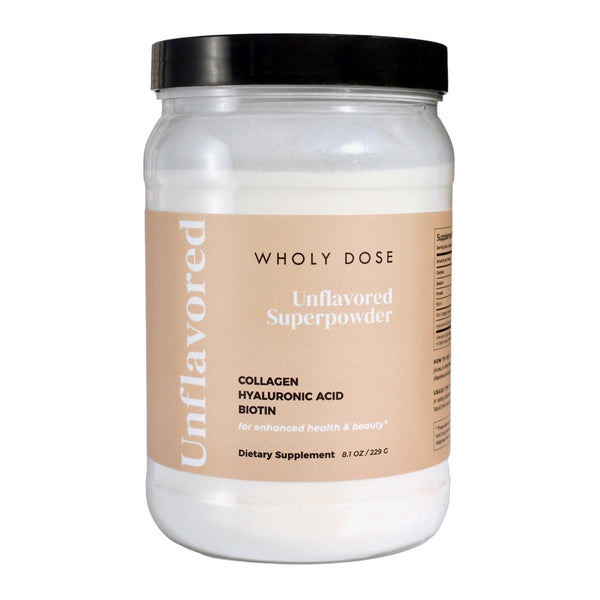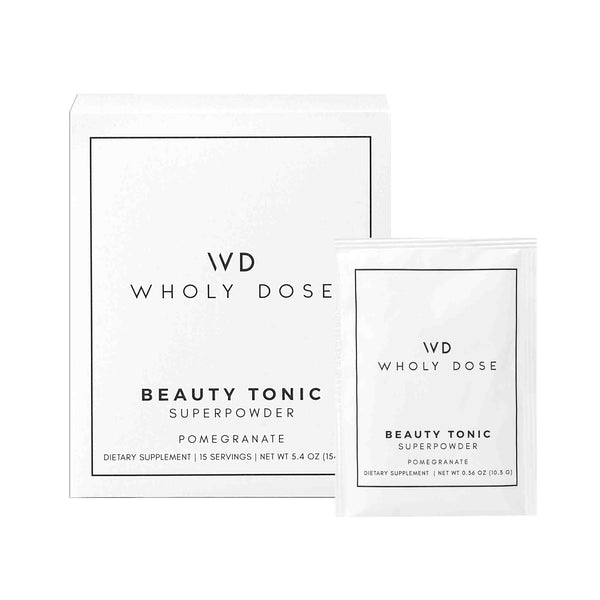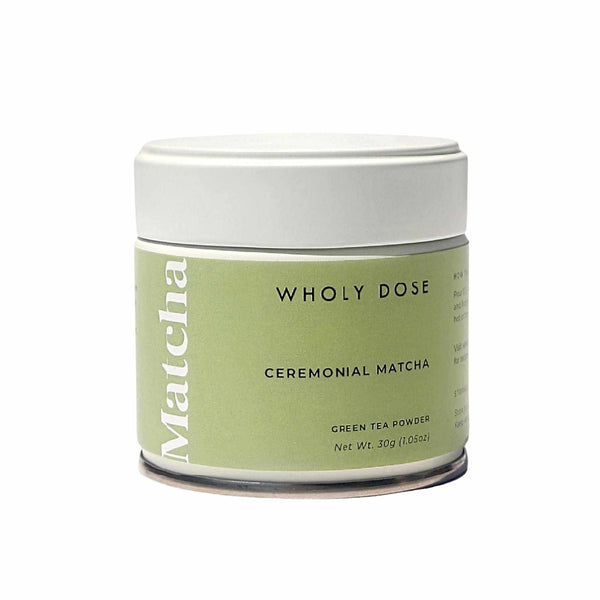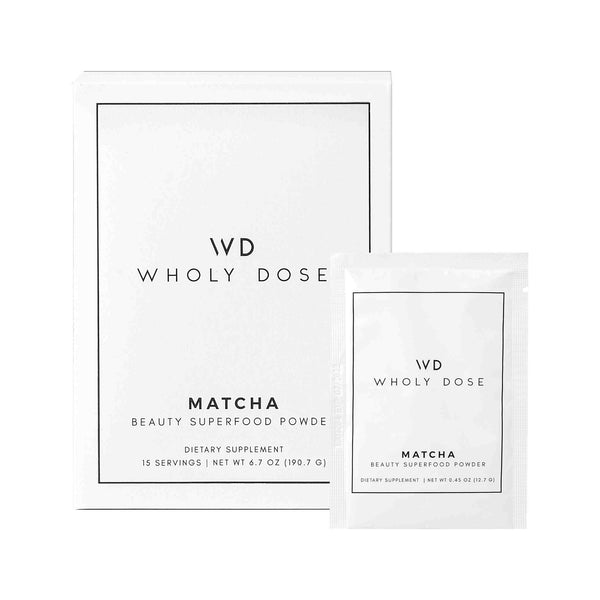
What is Collagen and What is It Good For?
Collagen is known as the most abundant protein in your body. It has many important roles, including providing structure to your skin and body, as well as aiding in the clotting of your blood.
In recent years, collagen has gained popularity as a supplement as well as an ingredient found in shampoos and body lotions.
However, you might wonder what collagen is, as well as what it’s good for. This article gives you a complete overview of this important protein.
What is Collagen?
Collagen is the most abundant protein in your body, accounting for about one-third of your body’s composition of protein.
It’s a major building block in the body for bones, skin, muscles, tendons, and ligaments. Collagen is also found in many other body parts, including teeth, the cornea, and blood vessels.
Think of collagen as the “glue” that holds your body together. In fact, the word collagen derives from the Greek word “kólla,” which means glue.
TAKEAWAY
Collagen is a protein that provides structure to a majority of your body, including your bones, skin, tendons, and ligaments.
What Does Collagen Do in Your Body?
There are at least 16 types of collagen altogether. The four main types are type I, II, III, and IV.
Here’s a look at the four main types of collagen and the roles they play in your body:
– Type I: This type is made of densely packed fibers and accounts for 90% of your body’s collagen. It provides structure to skin, bones, tendons, cartilage, connective tissue, and teeth.
– Type II: This type is made of more loosely packed fibers and is found in the elastic cartilage of the body, which cushions your joints.
– Type III: This type of collagen supports the structure of your body’s muscles, organs, and arteries.
– Type IV: This type is found in the layers of your skin and helps with filtration.
As you age, your body begins to produce less and lower quality of collagen.
One of the visible signs of this decrease of collagen in your body is in your skin, which becomes less firm and less plump over time. Cartilage also weakens with age.
TAKEAWAY
There are at least 16 types of collagen known in the body. Collagen can be found throughout your body, providing structure and support.
Nutrients That Increase Collagen Production
All forms of collagen start off as procollagen.
Your body creates procollagen by combining two amino acids — glycine and proline. This process also uses vitamin C. You can help your body product this important protein by making sure you get plenty of the following nutrients in your diet:
– Vitamin C: Found in large amounts in citrus fruits, bell peppers, strawberries, and kale to name a few.
– Proline: Found in large amounts in egg whites, wheat germ, dairy products, cabbage, asparagus, and mushrooms.
– Glycine: Found in large amounts in pork skin, chicken skin, and gelatin.
– Copper: Found in large amounts in organ meats, sesame seeds, cocoa powder, cashews, and lentils.
Additionally, your body also needs a high quality protein that contains the amino acids that are needed to create new proteins. Sources such as meat, poultry, seafood, dairy, legumes, and tofu all contain great amounts of amino acids.
TAKEAWAY
Nutrients that help produce collagen in your body are vitamin C, copper, glycine, and proline. Also, eating high quality protein gives your body the amino acids it needs to create new protein.
Things that Damage Collagen
Almost of greater importance, avoid these vital collagen-destroying behaviors:
– Eating too much sugar and refined carbs: Sugar interferes with collagen’s ability to repair itself in the body. To avoid, minimize your consumption of added sugar and refined carbs
– Getting too much sunshine: Ultraviolet radiation can reduce collagen production, and speed up the aging process. To avoid, minimize excessive sun exposure and always use sunscreen
– Smoking: Smoking also reduces the production of collagen. This can impair wound healing and further lead to wrinkles.
Certain autoimmune disorders, such as lupus, can also damage collagen.
TAKEAWAY
You can help your body preserve and protect collagen by avoiding the behaviors that damage it, which include eating excessive amounts of sugar, smoking, and over exposure to the sun.
Natural Collagen Food Sources
Collagen can also be found in the connective tissues of animal foods, such as large amounts in chicken and pork skin.
Another particularly rich source of collagen is bone broth, which can be made by boiling the bones of chicken and other animals. Gelatin is essentially cooked collagen and is also very high in the amino acids.
Despite this, there is still a debate over whether consuming collagen-rich foods actually increases the levels of this protein in your body.
When you consume protein in any form, it’s broken down into amino acids and then reassembled, so the collagen you eat will not translate directly into higher levels of collagen in your body.
That said, you can still gain the benefits of consuming collagen. More below.
TAKEAWAY
Animal foods such as gelatin, chicken skin, bone broth, and pork skin are very high in collagen.
Benefits of Collagen Supplements
There are two types of supplements that are gaining popularity — hydrolyzed collagen (collagen hydrolysate) and gelatin. Gelatin is created when collagen is cooked, as mentioned above.
These forms of supplements have already broken down the large protein down into smaller peptides, which in turn are more easily absorbed in the body.
While there are not as many studies on collagen supplements, those that do exist show promise for benefits in the following areas:
– Muscle mass: A study in 2019 of recreationally active men showed that a combination of strength training with collagen peptide supplementation increased muscle mass and strength more than a placebo.
– Skin elasticity: In a 2019 study, women who took a collagen based supplement showed improvements in skin appearance and elasticity.
Some medicine practitioners, doctors and nutritionists also advocate using collagen supplements to treat leaky gut syndrome.
You can view more studies of collagen benefits here.
TAKEAWAY
According to studies, supplementing collagen may help improve muscle mass and skin texture, as well as reduce osteoarthritis pain.
Safety and Side Effects
Despite it’s popularization, there is limited reliable information available on the safety and efficacy of collagen supplements.
The potential side effects of collagen supplements include an lingering unpleasant taste in the mouth or feelings of fullness. Also, if you’re allergic to the source of the supplement, there is a potential that you could have an allergic reaction.
TAKEAWAY
There are no substantial reports of side effects with consuming collagen, however, you could have an allergic reaction if you’re allergic to the source of the supplement.
How to Supplement with Collagen
Collagen peptides come in a powder that can be easily added into beverages and foods, like Wholy Dose Collagen Peptide Powders.
This peptide form of collagen doesn’t gel, as in comparison to the gelatin, so you can mix it into smoothies, soups, or baked goods without affecting the texture.
When considering supplements, you should look for a high quality source of collagen. Marine collagen, which is derived from fish skin, is also available.
TAKEAWAY
You can find collagen supplements in pill or powder form. Collagen powder can be easily added to beverages and food.
Other Uses of Collagen
Collagen has many uses, from medication, to food, to manufacturing.
For thousands of years, collagen was originally used to create glue. Even today, it’s still used to create strings for musical instruments.
In food, collagen is heated to create gelatin and used to create casings for many foods like sausages.
Whereas in the medical field, collagen is used as a filler in plastic surgery and a dressing for severe burns.
TAKEAWAY
Collagen has many uses, from the production of strings for musical instruments to dressing on burns.
The Bottom Line
Collagen is an important and essential protein that provides structure for many parts of the body.
As a bonus, certain foods and nutrients you eat can help your body make this protein.
Collagen supplements are beneficial with studies showing that they improve skin quality, muscle function, and reduce the pain associated with osteoarthritis.















